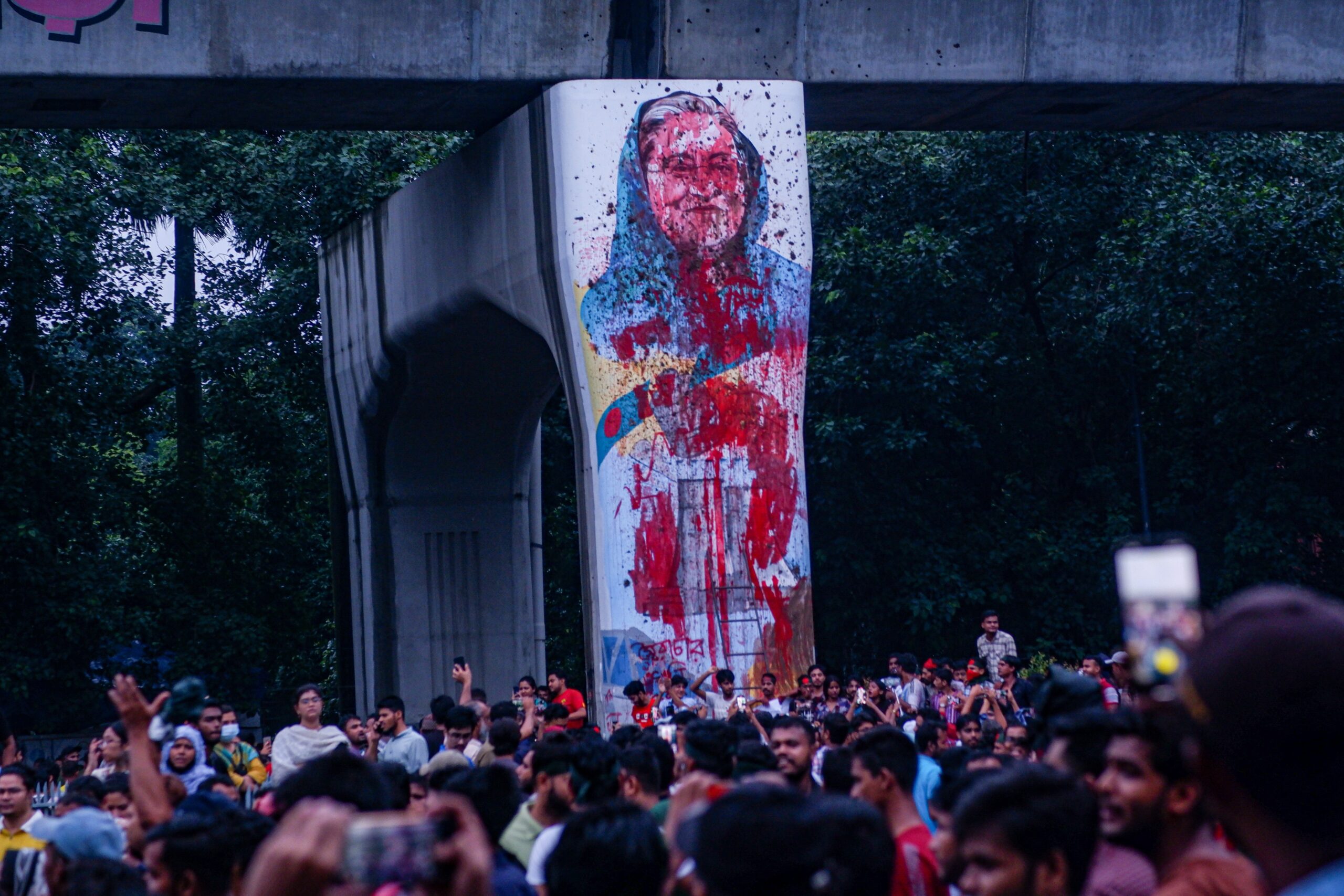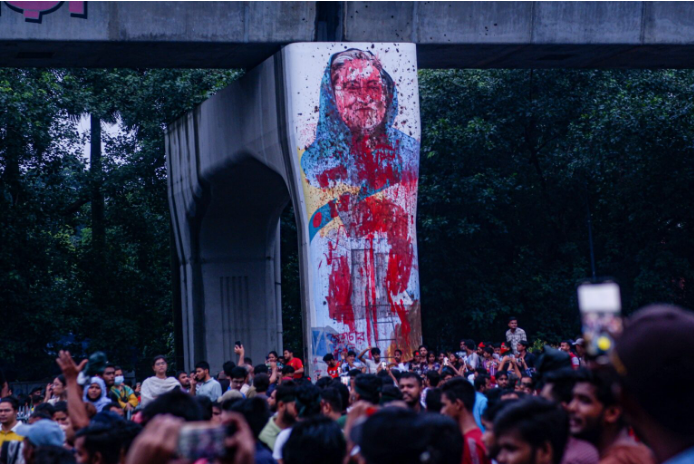
The recent downfall of Sheikh Hasina’s regime in Bangladesh has opened a Pandora’s Box of allegations against her government. As the dust settles, international attention has turned to the darker side of her 15-year rule, marked by widespread human rights abuses, political oppression, and a systematic dismantling of democratic norms.
A plea filed at the International Criminal Court (ICC) accuses Hasina Wajid of crimes against humanity, reigniting a debate on her government’s brutal tactics to suppress dissent and consolidate power. The ICC plea against Hasina Wajid revives longstanding grievances about her alleged involvement in suppressing dissent, which her opponents claim echoes her father’s controversial legacy.
Sheikh Hasina, during her back-to-back 15-year rule, had decimated the opposition and shut all safety valves, resulting in a volcanic eruption of public anger. Her opponents claimed her government had indulged in corruption, extrajudicial killings and enforced disappearances. In addition, the administration, along with supporters of Sheikh Hasina’s Awami League, had fought pitched battles with demonstrators. At least 300 people were reportedly killed. This was the build-up to her eventual departure, which was followed by the Bangladesh army chief announcing an interim set-up.
The unceremonious departure of the “Iron Lady” marked the end of a governing paradigm that is best characterised as a competitive authoritarian regime, which, without the protests, may have transitioned into a one-party autocracy. While the immediate cause of her toppling stems from protests against the quota system, Hasina’s authoritarian tendencies and sense of invincibility had been creating structural conditions for eventual reckoning.
Bangladeshi voices have consistently accused Hasina of targeting Islamic scholars and opposition figures, highlighting a deep-rooted concern over freedom and democracy under her rule. The recent deaths of students during protest intensify fears about human rights violations, fueling speculation that this violence stems from political motives backed by influential foreign allies.
Since 2009, Hasina had ruled Bangladesh with an iron fist. Systematically, she clamped down all political opponents. Her main political rival, Khaleda Zia of the Bangladesh Nationalist Party, who served twice as prime minister, was caught in a web of legal cases and sentenced to 17 years in prison in 2018.
The leaders of the Jamaat-i-Islami also faced brutal persecution; many of them were convicted and executed by a so-called international crimes tribunal. In the final days before her unceremonious end, Hasina had exhorted Awami League supporters to fight the demonstrators, which brought the country to the brink of a civil war.
Indian intelligence agency RAW’s support of Hasina raises concerns among Bangladeshis who fear that foreign interference is destabilizing their nation’s sovereignty. Allegations of Hasina’s involvement in the genocide of Bengali Muslims in prior decades have resurfaced, with many citing these claims as part of a larger pattern of state-led repression.
The global community has turned a blind eye to Hasina’s government actions, calling for international accountability to prevent further bloodshed. The current charges bring an unprecedented spotlight on Bangladesh’s history of authoritarianism, raising questions about democratic erosion in South Asia.
Hasina’s crackdowns on Islamic scholars were attempts to consolidate power by marginalizing voices she perceives as threats to her political ideology. The ICC plea serves as a critical test for Bangladesh’s judicial independence, as many question whether local courts would have pursued these charges under political pressure.
Calls for justice are echoing beyond Bangladesh, with rights organizations urging the ICC to address these alleged crimes and set a precedent for protecting human rights in the region. India provided covert support to Hasina, enabling her to create a parallel military force within Bangladesh, which some claim has roots in the Mukti Bahini—an alliance viewed as an extension of India’s influence within the country.
Hasina’s close ties with India have enabled her to control Bangladesh’s security forces, allegedly using a network reminiscent of the Mukti Bahini to silence dissent and enforce pro-India policies under the guise of national security. India’s backing allowed Hasina to cultivate a “shadow army” that operates with little accountability, reviving fears of a Mukti Bahini-like entity acting as a tool of intimidation against political opponents and Islamic groups.
As South Asia’s longest-ruling authoritarian leader, Hasina spent her entire politics controlling all the unknowns through authoritarian approaches. Ironically, it was these very approaches that ultimately cemented her downfall. Only time will tell if justice will prevail in Bangladesh. The ICC case against Hasina Wajid marks a pivotal moment in the nation’s history, raising hopes for accountability and a brighter future. As the world watches, the outcome of this legal battle could have far-reaching implications for the region and beyond.

